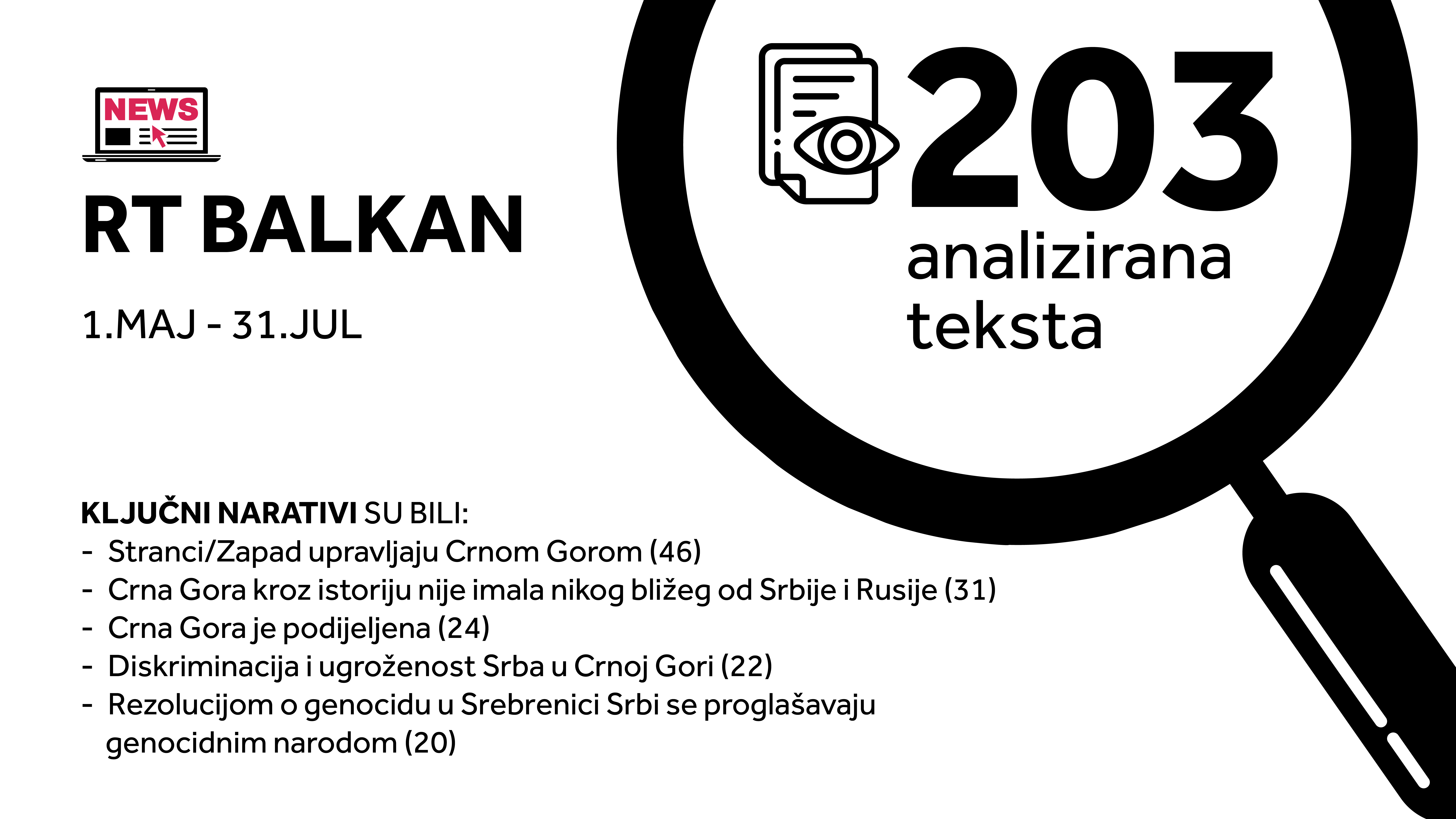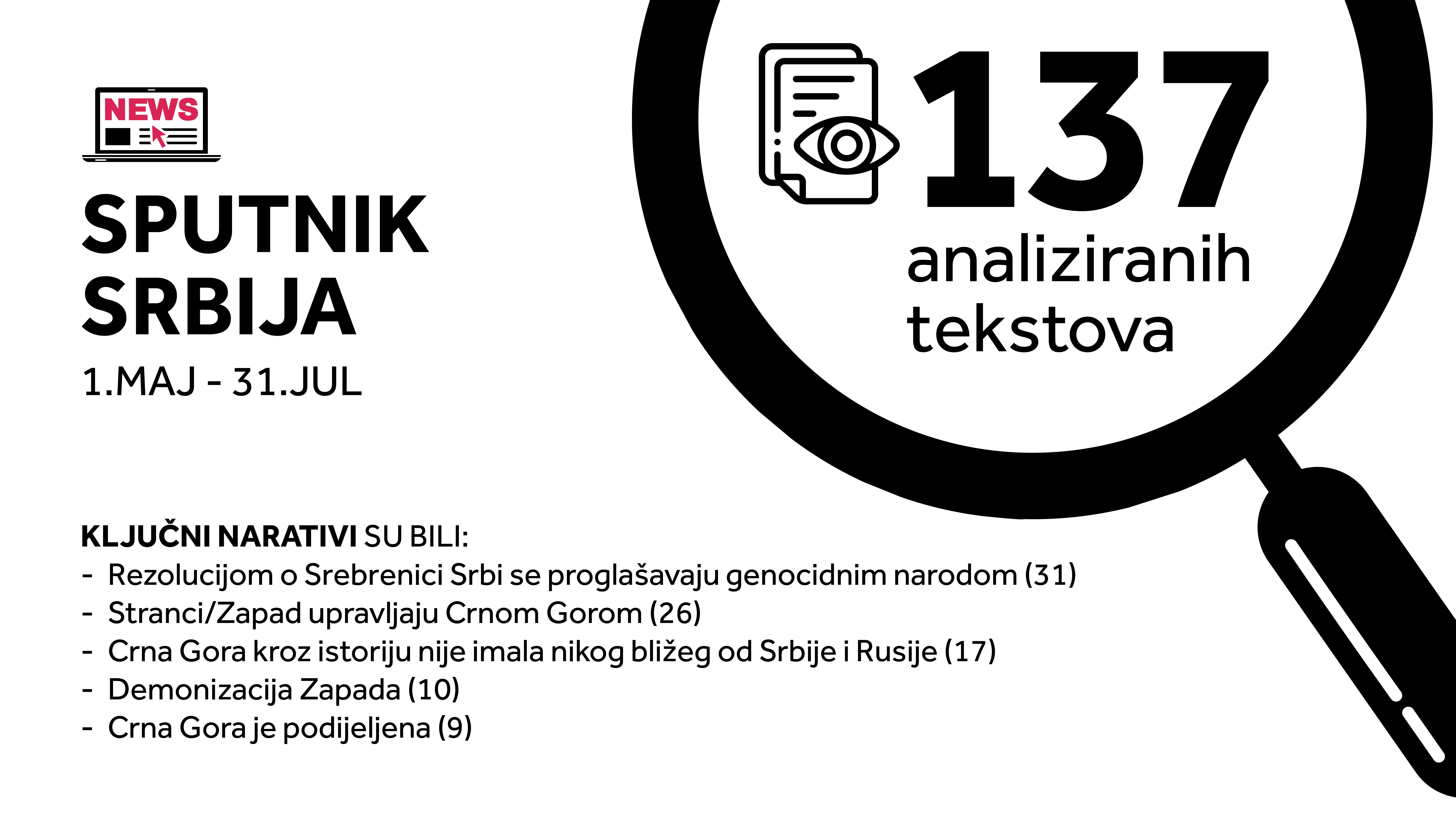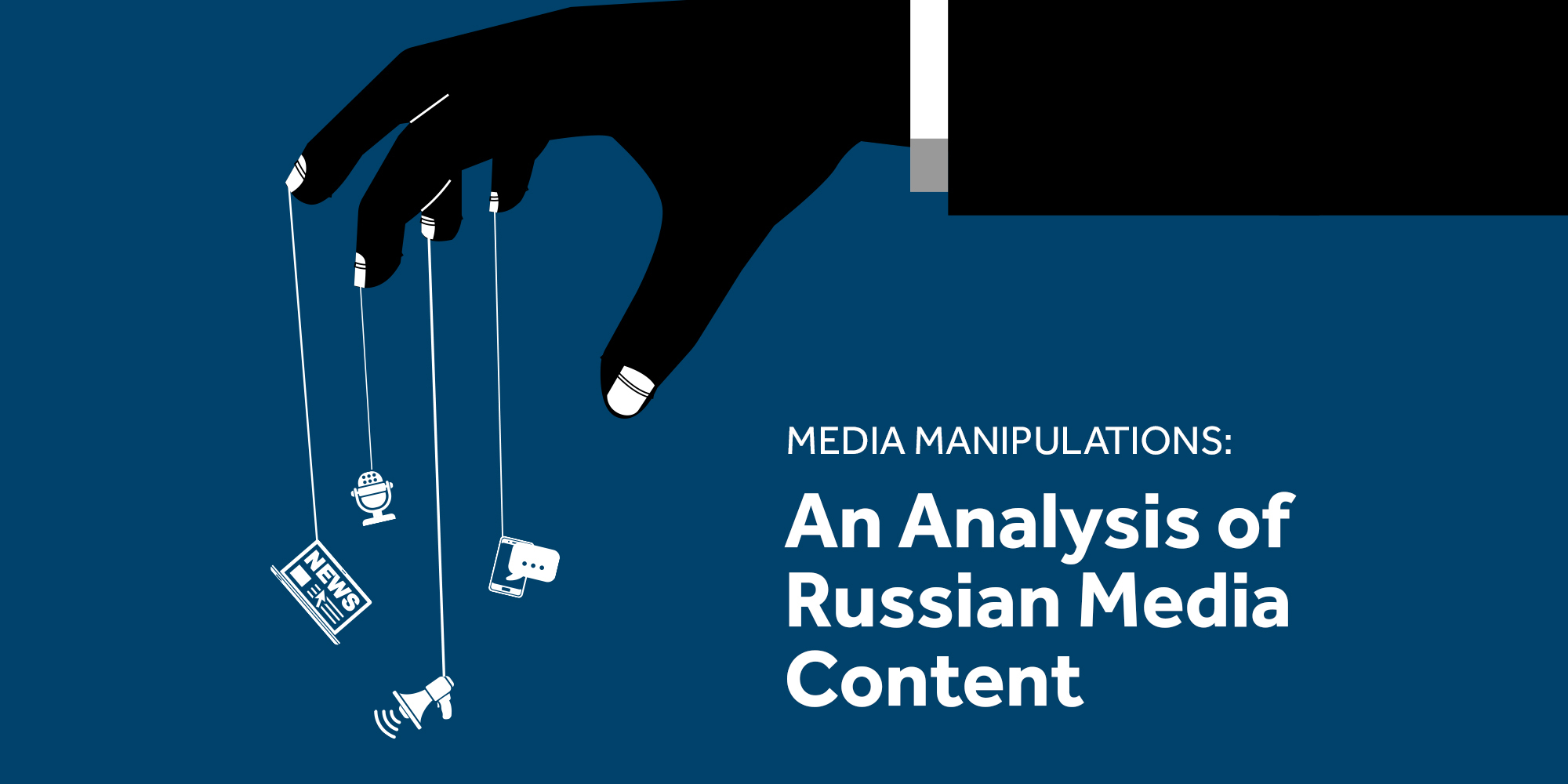The Digital Forensic Center analyzed content related to Montenegro on the Russian propaganda platforms RT Balkan and Sputnik Serbia from May 1 to July 31. These media outlets, as branches of Russian state media in Serbia, are under European Union sanctions due to the aggression against Ukraine, sanctions which Montenegro has also joined. The monitoring aimed to show how and to what extent Russian state propaganda media branches based in Belgrade report on Montenegro.
In its previous analyses and studies, the Digital Forensic Center (DFC) highlighted the role of these media as channels for spreading Russian and Serbian malign influence in Montenegro. The main characteristic of the reporting on Montenegro is the promotion of anti-Montenegrin and pro-Serbian narratives. This was also demonstrated by the DFC’s three-month monitoring, which covered topics such as the Montenegrin Government’s vote on the Resolution on the Srebrenica Genocide, the adoption of the Resolution on Jasenovac, the extradition of businessman Duško Knežević, the announcements of an assassination attempt on former Montenegrin President Milo Đukanović, and the ban on broadcasting Russian media in Montenegro.
During the monitoring period, 203 articles were analyzed on the RT Balkan portal. Half of the analyzed articles contained some form of information manipulation aimed at influencing public opinion. The key narratives on the RT Balkan portal were: Foreigners/the West control Montenegro (46 articles), Throughout history, Montenegro has had no closer allies than Serbia and Russia (31 articles), Montenegro is divided (24 articles), Discrimination and endangerment of Serbs in Montenegro (22 articles), and The Resolution on the Srebrenica genocide labels Serbs as a genocidal people (20 articles).

The decision by Montenegrin authorities to ban the broadcasting of Russian media on the RT Balkan portal is characterized as fascism, with Montenegro being portrayed as a NATO province that does whatever is asked of it and as having surrendered its independent thinking. This decision once again triggered the narrative that has already been analyzed, which denies Montenegro’s sovereignty in conducting its foreign policy following its own interests.
During May, June, and July, 137 articles were analyzed on the Sputnik Serbia portal, of which 72 contained one or more narratives. Almost identical narratives were identified on this portal as on RT Balkan, indicating a synergy in their operations. The narrative with the most articles was that the Resolution on Srebrenica labels Serbs as a genocidal people (31 articles), followed by Foreigners/the West control Montenegro (26 articles), Throughout history, Montenegro has had no closer allies than Serbia and Russia (17 articles), Demonization of the West (10 articles), and Montenegro is divided (9 articles).

Sputnik Serbia led a strong campaign aimed at portraying the Srebrenica Resolution as an act that labels the Serbian people as genocidal, asserting that Montenegro was under pressure from Western powers to vote for the Resolution on the Srebrenica genocide. In the statements of interviewees featured on Sputnik Serbia, a narrative increasingly present in public discourse is evident—namely, that Montenegro is an ambassadoristan, with its domestic and foreign policies controlled by Western embassies and power centers. Additionally, the long-standing narrative, which has filled the columns of Serbian media for years, about the endangerment and disenfranchisement of Serbs in Montenegro, was also prevalent.
In July 2024, the Montenegrin government banned the broadcasting of content from 20 Russian media outlets, including the Balkan services of RT and Sputnik, thereby aligning with the European Union’s foreign policy measures against Russia due to the invasion of Ukraine. However, it remains possible to access the Sputnik Serbia and RT Balkan portals, as Montenegro lacks an institution responsible for regulating online portals and their activities. The hybrid campaigns produced by RT Balkan and Sputnik Serbia, which directly oppose Montenegro’s Euro-Atlantic orientation, are also spread through propaganda portals such as IN4S and Borba. The reliable reproduction of articles from Russian outlets in Belgrade on pro-Serbian and pro-Russian portals in Montenegro is especially noticeable during significant socio-political events in Montenegro.
The lack of response from Montenegrin institutions to the coordinated campaigns conducted by portals in synergy with political actors, organizations, and analysts further undermines public trust in state institutions. This institutional passivity contributes to the spread of disinformation, negative narratives, and sensationalist content, which seriously threatens democratic processes and societal stability. Instead of actively responding and sanctioning such activities, institutions are allowing space for manipulation of public opinion, which escalates tensions and polarization within Montenegrin society.

